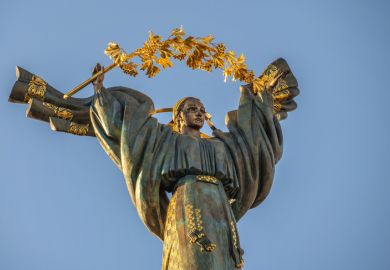The last and saddest "Indian war" was waged on the children in the dormitories and classrooms of government boarding schools. Here, Indian boys and girls were instructed in the religion, dress, habits and skills of "civilised" life. Tribal identity, primitive language, heathen religion were to be rooted out and effaced. It was necessary, as one educator explained, "to kill the Indian and save the man."
Education for Extinction is a broad and thorough study of this misguided campaign to use the boarding school as an instrument of acculturation. Comprehensive in scope, it analyses the purposes and ideology of educators and reformers and then explores how their thinking translated into institutional practice in the schools. Everything is there: the cropped hair and army uniforms, the endless drilling and marching, the round of daily chores, the spells in the guardhouse for speaking Indian, and the ubiquitous little school graveyards, signalling the terrible toll these institutions took on young lives.
There were, David Walace Adams shows, many different responses to the school as well as strategies for adaptation. Some students resisted openly and defiantly: they ran away or torched the school buildings. While many cooperated with the institution that would transform them, it was always on their own terms. Cooperation was rarely synonymous with a wholesale abandonment of Indian identity.
Adams's thorough research and familiarity with the scholarship of a broad range of topics (from total institutions to gender theory and the anthropology of sport and rituals) make this a substantial contribution to Indian history and required reading for all students of United States race relations.
Life within Indian boarding schools has only recently started to be examined, partly because the written record is so sparse and unreliable. They Called It Prairie Light is substantially based on oral sources. This moving and impressive book is animated by a quiet passion not to allow the official voice its victory. Extracts from interviews with 53 former students, from the 1920s and 1930s, have been organised by K. Tsianina Lomawaima to allow the alumni to tell their own story.
Using the combined skills and sensitivities of anthropologist, historian, interviewer and daughter (her father was a Chilocco student), Lomawaima shapes these personal narratives to disclose how "an institution founded to transform Indian youth was paradoxically given life by the very people whose tribal identity it was committed to erase."
She translates the petty details of a boring and regimented existence into a sophisticated text revealing the political, cultural and personal dynamics of boarding school life. At Chilocco, Lomawaima shows, peer-group loyalty, fostered by the strictly regimented school, helped to strengthen rather than dissolve both tribal and pan-Indian identity.
Although off-reservation Indian schools like Chilocco, Carlisle and Phoenix are the best known, they enrolled a relatively small proportion of the school-age Indian population. To Change Them Forever studies a school built on a reservation for a single tribe, the Kiowa. It was in boarding schools like this that the vast majority of Indian children spent their school lives.
Clyde Ellis's careful research reconstructs the relentless grind of daily life at Rainy Mountain. There was a world of difference, Ellis demonstrates, between the ideals of official policy and the realities of reservation life. Many historians assume that the tribes generally resisted the American education forced on them. Ellis discovers that despite the school's appalling inadequacies, it was always filled to capacity and was warmly supported by many Kiowa.
In failing to wipe out Indian identity the schools unwittingly left a heritage both complicated and unforeseen. The brutality was clear to all, but only now, with the help of works such as these, are we beginning to unravel the contribution to tribal solidarity and Indian consciousness that also emerged.
Jacqueline Fear-Segal is lecturer in American history, University of East Anglia.
To Change Them Forever: Indian Education at the Rainy Mountain Boarding School, 1893-1920
Author - Clyde Ellis
ISBN - 0 8061 2825 9
Publisher - University of Oklahoma Press
Price - £24.95
Pages - 250
Register to continue
Why register?
- Registration is free and only takes a moment
- Once registered, you can read 3 articles a month
- Sign up for our newsletter
Subscribe
Or subscribe for unlimited access to:
- Unlimited access to news, views, insights & reviews
- Digital editions
- Digital access to THE’s university and college rankings analysis
Already registered or a current subscriber? Login



